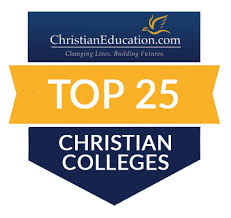Most of my blogs are directed at loving parents; this essay is addressed to colleagues. Most of my posts contain actionable advice; this column has open questions. My repeated polemics—play Parcheesi with your kids; take your kids camping—will give way to queries for which I do not have straightforward guidance.
A father and son are looking at colleges, working together to develop an appropriate list. Junior loves baseball, played Little League and is the second baseman on his high school team. Surely it is appropriate to consider colleges that have baseball teams.
Stacey is social, president of her youth group, loves connecting with friends, heading up community service projects. Clearly applying to colleges that accentuate sororities is reasonable. Stacey will join a sisterhood and her educational experience will be enhanced as she makes friends and assumes leadership positions in the organization.
John is an active member of his youth group. He attends church (or synagogue or mosque) regularly and believes in the tenets or his religion. He can select colleges based on his understanding that there will be other young people who share his beliefs and with whom he can attend religious services. Considering faith based colleges seems a reasonable search criterion.
Robin has struggled with math throughout her primary and secondary education. In high school, she has been dutiful, studying an hour a day, working with a tutor twice a week, seeing her teacher for extra help. As a senior she is justifiably proud of her B- in algebra II. She is putting together a list of colleges that do not require students to take advanced math courses. She does not have the background nor the ability to do well in a college calculus sequence. She will apply to and matriculate at a college where she can thrive, majoring in literature, philosophy, or the humanities. Avoiding polytechnic colleges or technology institutes makes sense.
Alternatively, it seems reasonable to develop a college list based on the absence of activities. For 39 years of professional practice I have guided my students to avoid colleges where they are less likely to make connections, belong, fit in, be happy. If Tommy hates watching or playing baseball, by all means he should consider colleges that place less emphasis on athletics. If Jennifer doesn’t care for Greek life, she can apply to schools where a small number of students are members of sororities. An atheist student can sensibly avoid faith-based schools.
But at this step—choosing colleges based on what students don’t want—the process of developing an appropriate list gets murky. Choosing colleges where there are other students who share your beliefs, enthusiasms, and passions seems reasonable. But what about picking institutions based on there NOT being students with whom you have a lot in common. What would you say to a student who expressed a preference for colleges where there were few…
Students of color
Hispanic or Latino students
Native American students
Filippino students
Jewish students
Muslim students
Catholic students
Low-income students
LGBTQTIA+ students
Foreign born students
Differently abled students
It strikes me offensive, prejudicial, and downright wrong to include only colleges that are underrepresented in underrepresented populations.
But just as ordering the chicken precludes a diner from having the fish, picking a school with more of these precludes attending class with more of those. Ethical counselors and loving parents want to encourage their students to learn from, grow with, and be exposed to new ideas and the people who possess them. Indeed, it is frequently argued that the fundamental purpose of a liberal arts education is uncovering that with which we were previously unfamiliar. Just as I can only start learning when I stop talking, I can’t make any progress by sitting in a classroom with cloned copies of myself.
So that’s as far as my thinking has evolved helping hundreds of students put together lists of schools over the past four decades. Where do we draw the line? How do we balance fitting in with eschewing prejudice?
I am eager to hear the thoughts of my community.







One thought on “Open Question”
You always hit the nail on the head. Hope all is well with you and yours. Best wishes for the holiday season.
Keep up the great work.
Best,
Luisa.